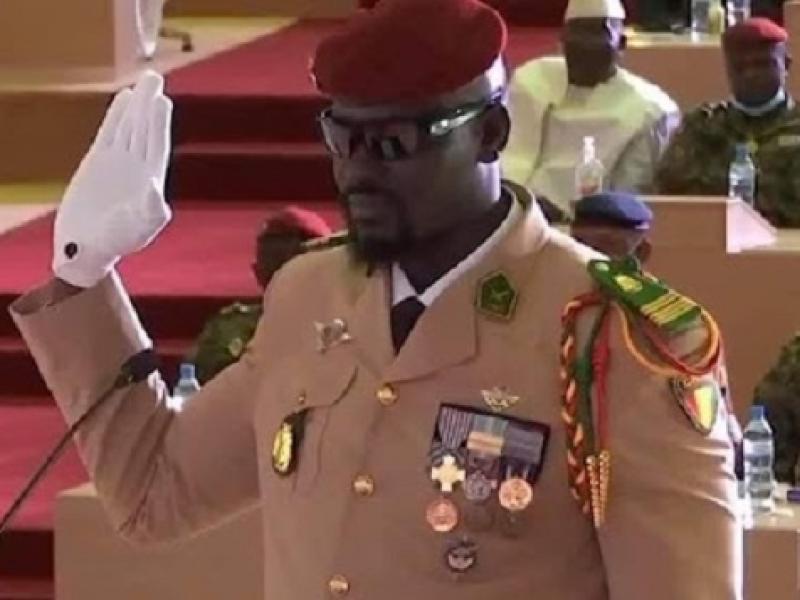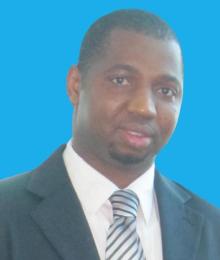In a country striving for stability and democracy, Guinea finds itself once again at a crossroads. Three years after toppling the nation’s first democratically elected president, General Mamadi Doumbouya, the current president of the transitional government, now seems poised to break his promises and run in the upcoming presidential elections. If this decision is realized, it would be nothing short of a betrayal of the Guinean people and a blatant violation of the democratic principles for which so many Guineans have fought.
When Doumbouya seized power in 2021, he portrayed himself as a savior, vowing to restore justice, social cohesion, and financial integrity, which he claimed had been eroded by the previous regime. He solemnly promised to organize transparent and inclusive elections, swearing that neither he nor any member of the transitional government would run as candidates. This commitment was enshrined in the Transitional Charter, a document meant to guide the country towards a democratic future.
Today, the prospect of his candidacy in the presidential elections is a direct betrayal of that oath. It shows that the promises made were merely a means to seize power, with no real intention of returning it to the people as promised. This reversal undermines the already fragile trust of the Guinean people in their leaders and threatens to plunge the country into yet another period of political instability.
One of Doumbouya's key promises was to restore the rule of law and judicial independence. However, his regime has quickly shown worrying signs of using the judicial system for political purposes. The prolonged detention without trial of political figures such as Kassory Fofana, Amadou Damaro Camara, and Dr. Diane is a glaring example of this drift. These detentions, which appear to be political score-settling, violate fundamental principles of the presumption of innocence and the right to a fair trial.
This misuse of the judiciary is not limited to political opponents. It also extends to civil society, with the abduction of activists like Fonike Mangue and Billo Bah. These acts of repression are clearly aimed at silencing critical voices and creating a climate of fear, reminiscent of the darkest days of the authoritarian regimes Guinea has endured in the past.
Ironically, one of the main justifications for Doumbouya’s coup was the fight against corruption and financial mismanagement. Yet under his regime, these problems seem to have escalated to new heights. Widespread corruption has infected every level of the administration, while embezzlement of public funds continues at an alarming rate.
Support movements for Doumbouya's candidacy, emerging across the country, are often accompanied by cash handouts, a practice that is tantamount to large-scale vote-buying. This misuse of state resources for personal gain is not only illegal but also deeply immoral, depriving the Guinean people of the crucial investments they desperately need.
Even more alarming is the treatment of dissenters within the military. The arrests, torture, and even killings of soldiers in prisons, such as those of Sadiba Koulibali and Pepe Celestin, are flagrant violations of fundamental human rights. These barbaric acts, carried out against those who are supposed to protect the nation, reflect a regime that has lost all moral legitimacy and rules by fear rather than consent.
While Doumbouya's regime focuses on consolidating its power, the country's economic and social situation continues to deteriorate. The rising cost of living has become unbearable for the majority of Guineans, who struggle daily to make ends meet. Galloping inflation erodes purchasing power, while economic opportunities remain scarce.
The state of the country’s infrastructure is equally alarming. The deterioration of roads not only hampers the mobility of citizens but also stifles economic development, isolating entire regions and slowing trade. Frequent power outages paralyze economic activity and complicate daily life for Guineans, a stark reminder of the unfulfilled promises to improve living conditions.
Doumbouya’s potential candidacy in the presidential elections poses an existential threat to Guinea's fledgling democracy. It would perpetuate a vicious cycle where military leaders seize power under the pretext of saving the country, only to cling to that power by any means necessary.
If this scenario unfolds, it would send a disastrous message not only to the Guinean people but also to the entire West African region: that coups and broken democratic promises are acceptable ways to gain and maintain power. This would only encourage other military adventurers to follow the same path, plunging the region into chronic instability.
In the face of this alarming situation, it is crucial that the international community, and most importantly, the Guinean people themselves, mobilize to demand the fulfillment of the commitments made during the transition. Guinea needs a genuine democratic transition, not a sham election designed to legitimize power gained by force.
Civil society organizations, opposition political parties, and all citizens who cherish democracy must unite to resist this authoritarian drift. It is time to remind Doumbouya and his entourage that power belongs to the people and that their role is to facilitate a return to constitutional order, not to cling to it indefinitely.
Doumbouya's likely candidacy in the presidential elections is not an act of patriotism, as his supporters would have people believe. It is a blatant betrayal of the promises made to the Guinean people, a violation of the Transitional Charter, and a step towards authoritarianism.
This situation highlights the deep challenges Guinea faces in its quest for democracy and good governance. Widespread corruption, the politicization of justice, human rights abuses, and the worsening living conditions of citizens are all symptoms of a deeply dysfunctional political system.
The Guinean people deserve better. They deserve leaders who keep their promises, who put national interest above personal ambition, and who work tirelessly to improve the living conditions of all citizens. Guinea needs a real democratic transition, not another dictator in uniform.
The time has come for all Guineans to stand up and say no to this betrayal. To demand respect for the Transitional Charter and the organization of free, transparent, and inclusive elections in which neither Doumbouya nor any member of his transitional government would run. Only then can Guinea hope to break the cycle of authoritarianism and embark on the path of true democratic and economic development.
The future of Guinea lies in the hands of its people. It is time for Guineans to remember the struggles of the past, the sacrifices made for democracy, and to categorically reject this new attempt to seize power. The nation's future depends on it, and every citizen has a crucial role to play in this fight for the preservation of democratic ideals and the construction of a more just, prosperous, and truly free Guinea.












